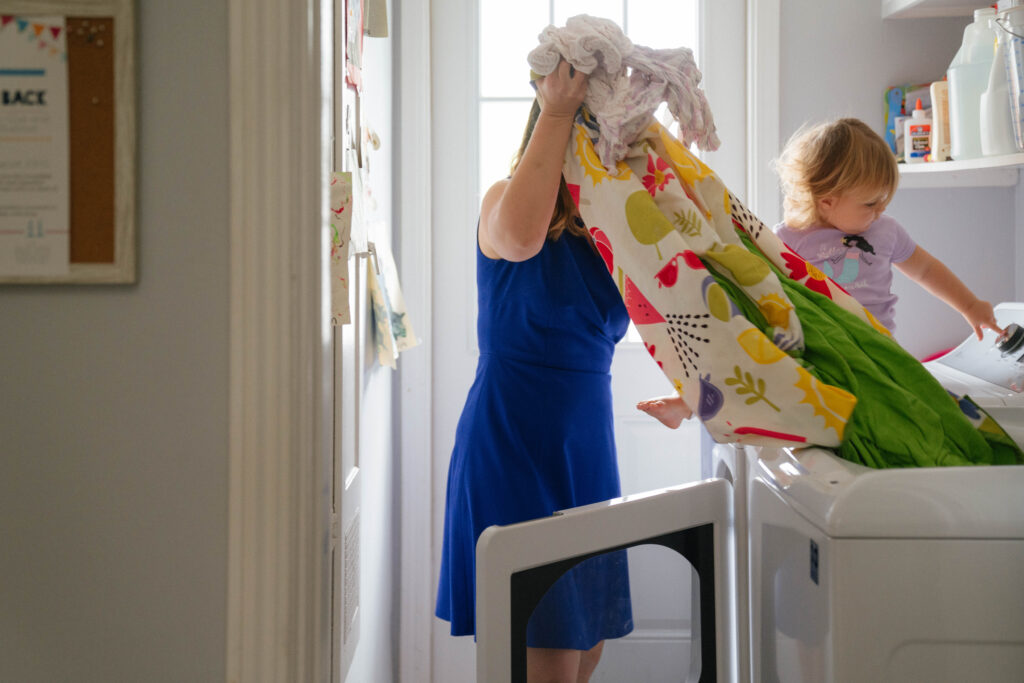
This article originally appeared on Forbes.com.
With Mother’s Day around the corner, the release of the sixth Annual State of Motherhood Report couldn’t come at a better time. This year’s report shines an even brighter (or darker) light on the harsh realities that mothers are continuously at war with when it comes to navigating a growing career and family such as mental health, family savings and spending, sex and social lives, workforce barriers and of course—the childcare crisis.
Jill Koziol, CEO & Cofounder of Motherly, states, “My hope is that this data arms mothers and their allies to advocate for change at the corporate and governmental level.” She continues, “Because mothers are the foundation of our society—their challenges are collective societal challenges and must be addressed to ensure future success for our country.”
I couldn’t agree more that mothers are the foundation of our society, capable of exponential change and fed up with the lack of support that comes with wanting a life where we can both advance our careers and be present for our families. I’m honored to amplify the voices of the thousands of women who participated in this report by sharing findings that stood out to me most.
A working mom’s mental health is not okay.
The mental health findings of this report are concerning but not surprising. The report reveals that working mothers are experiencing higher levels of anxiety and depression compared to working fathers, with 66% of working mothers reporting negative mental health impacts as a result of the pandemic.
- Nearly half (46%) of mothers are currently seeking therapy.
- Fifty-eight percent of moms report they are primarily responsible for the duties of running a household and caring for children.
- Eight-in-ten (80%) mothers are concerned about a possible recession and 71% report they are planning to cut back spending.
Even in today’s incredibly harsh economy, mental health concerns have surpassed finances as mothers’ top source of worry.
Moreover, the pandemic has had a disproportionate impact on caregivers, with 78% reporting that their mental health has been negatively affected. The report also highlights that people of color, particularly Black and Latino parents, have experienced greater mental health impacts compared to white parents.
Mom’s needs aren’t coming without a price.
According to the study, mothers are prioritizing sleep over sex and time with friends. Even more than that, 78% of moms admit to sacrificing sleep to take care of their families. This statistic shows the immense pressure that moms are facing, as they struggle to balance the demands of work and parenting.
It’s not just sleep that moms are sacrificing, though; they’re also giving up their social lives. The report found that 80% of moms have had to turn down social invitations due to parenting responsibilities.
There’s something really clear that we keep seeing over and over again in the working parent/caregiver ecosystem—to bring mothers back to the workforce, they need affordable childcare and flexibility.
It’s no surprise that the high cost of childcare is impacting how moms navigate their careers. Seventy percent of moms say they’ve had to make sacrifices in their careers to accommodate their family’s needs, with 50% citing childcare as the reason. In fact, 72% of moms feel that the cost of childcare is a significant financial burden, which simply confirms that the lack of affordable childcare is perhaps the most monumental barrier preventing mothers from fully participating in the workforce.
As suspected, the demand for workplace flexibility continues to take center stage.
- Sixty-one percent of mothers report that their employer is not offering any new or additional forms of flexibility in response to the pandemic.
- Forty-six percent of mothers say that flexible work arrangements are the most important benefit their employer could offer.
- The report found that a lack of flexible work arrangements has led 52% of mothers to consider leaving the workforce or to reduce their hours.
At WRK/360, we often see our clients, working parents and caregivers (mostly women) navigate unrelenting and compounding crises. From the pandemic, a failed childcare system, lack of flexible work options and now an economic insecurity—the list never ends. As showcased in the report, these demands aren’t sustainable and it is not on each individual to find a solution. Yes, there are steps we all can take, but it is critical for organization leaders to drive policy and culture change.
How do we move forward?
It is one thing to have all these statistics but it is another thing to do something with these findings and insights. So now what?
Share the findings with your friends, your partners, colleagues, ERGs and leaders. Start the conversation around the changes that can be made to better support mothers. Model caring out loud with your teams at work, e.g., share when you are skipping a meeting to take your mother-in-law to the doctor or to attend your daughter’s dance recital.
And to organizations and leadership, challenge yourself with a simple question; What actions are we taking that could be adding to the challenges working moms are facing within our organization?
Evaluate your company’s flexible work arrangements, paid time off policies, mental health support, access to affordable child care (or better yet, offering it) and overall culture of support. Are you simply offering these benefits to check the boxes then discouraging or even punishing those that use them?
How are mid-level managers educated and trained on implementing and supporting caregivers and parents across your organization? Are they also encouraged to model behavior such as taking time off to rest and recover?
We have to do more than check the boxes. With the right programs, policies and implementation, employers can do their part in working toward a world where mothers can finally thrive both at home and in the workplace.
Posted In: Articles, Fathers & Work, Health & Wellness Tips, Mothers & Work, Resources, Work & Family
